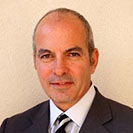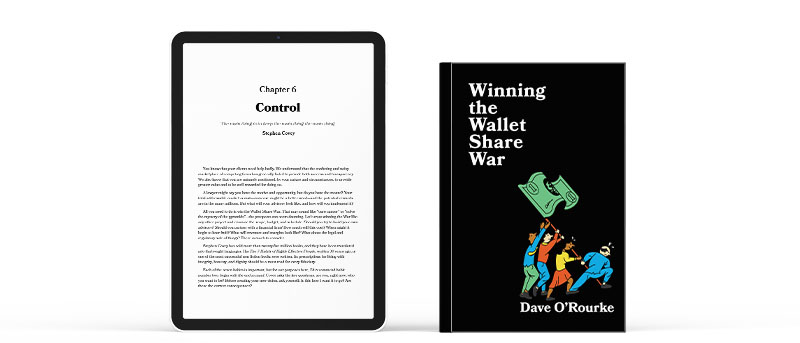My firm works with hundreds of CPAs and EAs across the USA, and we routinely engage with them on the subject of expanding their practice to include wealth management services. Tax pros are clear on the benefits of doing so; it can mean a massive increase in revenues, profitability, productivity, and practice valuation. There are enough real-life examples of accounting professionals who have made the transition to know it can be done.
There are also many barriers to entry. Some tax pros worry about the costs and the potential hit to their productivity associated with acquiring the subject matter expertise and implementing the infrastructure they’ll need. Many worry about their reputation. And some have a deep-seated sense that they simply can’t compete, either because they don’t want to become a salesperson or because they feel their offerings just won’t be attractive enough.
This blog is for all those tax pros who are worried about their competitive strengths. I’ll be using research from well-known and deeply resourced organizations with skin in the game, Morningstar and Vanguard. The results should be encouraging for tax pros: neither sales ability nor promises of big returns matter much and may, in fact, be negative factors for those who employ them.
We’ll begin with a look into those things that actual clients value most, and discuss the relative strengths and weaknesses of tax pros-vis a-vis product salespeople. I’m using product salespeople as the default group because the ethical tax pro doesn’t really compete with other fiduciaries. In a perfect world—in other words, in the world of the family office—fiduciaries across the wealth and risk management spectrum work together with a singular focus: the benefit of the families they serve.
What do Clients Really Want?
Henry Ford famously said, “If I had asked people what they wanted, they would have said faster horses.” It’s hard for me to argue with Ford’s assessment of consumer sentiments, but I would still suggest that the desire for “faster horses” did inspire innovations in transportation that would get people from A to B in less time.
Knowing the customer’s needs almost always conveys an advantage to professionals, whatever field they are in. Morningstar, the ratings, research, and asset management juggernaut, conducts research into what they call Gamma. Gamma is a measure of the impact advisors can have on an investor’s expected retirement income through wise financial decisions. Their research suggests that sound portfolio architecture, withdrawal strategy, and tax-efficient allocations can generate 29% more income on average for a retiree.
In an effort to help advisors understand what clients value most from their advisors, Morningstar surveyed both clients and advisors, asking them to rank a list of 15 common attributes in order of importance. They discovered that advisors don’t have a clear picture of a client’s priorities.
Morningstar says that the findings “suggest that there are opportunities for advisors to better address investors’ needs and educate investors on the real value of advice.” Given that the average American investor underperforms benchmarks every year, it’s clear that “there are opportunities for advisors to better address investors’ needs and educate investors on the real value of advice.”
To me, this sounds like something Henry Ford might have said. Instead of realigning the value propositions of the existing force of financial advisors—faster horses—it may make a lot more sense to invent a new kind of advisor, the family office director. This would be a Certified Public Accountant or Enrolled Agent operating at the center of their clients’ financial lives.
My argument gets stronger when we look at six attributes that clients said they value most. Let’s look at each and think through who would be better positioned to help their clients succeed, a captured salesperson from a large brokerage firm, bank, or insurance company, or a tax professional in the role of family office director.
The number one attribute, which comes as no surprise, is “helps me reach my financial goals.” All we need here is to examine the growing wealth gap in the US. The top 1% of Americans now own over 32% of all the wealth in America. Single and multi-family offices serve the wealthiest families, and I have never heard of any family office that does not employ tax professionals in key, client-facing director roles.
The richest American families are gapping away from all other wealth cohorts, and that is prima facie evidence that they are simply getting better help and better advice. It’s axiomatic that these families can have anything they want, and they overwhelmingly choose the family office model. Democratizing that model, which would be the tax professionals full employment act, would likely positively impact client’s performance.
Value number two, “has the relevant skills and experience,” is essentially a laugher. If understanding finance, financial statements, and financial analysis underlies those relevant skills, it’s no contest. The years a tax pro spends in education and training also give them a significant edge in experience.
The big insurance companies and brokerage houses run recruiting campaigns 365 days a year, and churn out new financial advisors with four months or less of training, much if not most of which is spent on sales and product training. This is not an avenue of philosophers, to put it mildly.
The third most valued attribute, “communicates and explains financial concepts well,” is pretty clearly an advantage for the tax professional over the salesperson. Understanding the features and benefits of a given product is a far cry from a broad and deep knowledge of financial concepts.
The larger the fortune, the more likely there is a tax pro on the team. But this could work in the other direction, because the average family would enjoy a more meaningful impact from Gamma. Multi-millionaires already have financial security; helping an average family get there is a much heavier and more consequential lift.
Attribute number four can get us deep into the semantical weeds. This attribute shows a significant disconnect between client and advisor; clients rank it number four, but advisors have it dead last, in 15th position. I’ll give this much to the old-school advisors: they know that promising maximized returns which clients say they want fourth-most, is juggling with dynamite.
But if we look a little deeper and more carefully define what “maximize” means, we see enormous opportunity. Vanguard has studied Gamma as well and has concluded that advisors can add 3% or more in annual return with a combination of cost control, asset location, spending strategies, behavioral coaching, and other practices. A three percent greater return on the trillions of dollars of investable assets in America would have an historic impact on American society.
Rather than speculating on risky investments that promise high returns, investors would be wise to maximize their returns by focusing on the kinds of controllable activities on offer from Gamma.
Attribute number five is a laydown victory for the tax pro, who is consistently rated as “most trusted” in consumer surveys. “Has a good reputation and positive reviews” is something that describes the American tax pro, who is a fiduciary by nature and who is synonymous with dependability, reliability, and accuracy. Enough said.
The last of the top six is a virtual tautology for the tax pro : “is knowledgeable on tax consequences of investing.” This is entirely in the domain of the tax pro, in the same way, that medicine is for a doctor. The fact that it’s ranked number six out of fifteen reflects the retail character of the survey group. I imagine it would be in the top three among the clients of family offices in this type of survey, but I would also think those clients would need a different survey.
We all know that the results of surveys can be manipulated by the way that questions are structured. For example, if the Morningstar survey included “is a true fiduciary,” “works in a coordinated and collegial way with other financial professionals,” and “is completely transparent,” we might see very different results. The retail world isn’t asked questions like that because those things are so rarely on offer.
Ultimately that is the most important takeaway. Don’t seek to breed faster horses; look to invent an entirely new form of transportation. Don’t try to be a more persuasive salesperson; offer a better value proposition. The tax professionals who do that have a very bright future ahead of them.















